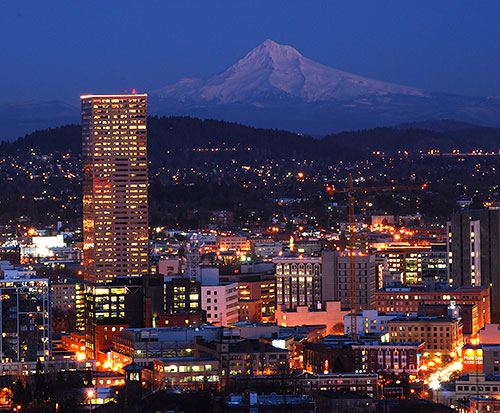When asked about our press, we usually find ourselves reiterating the Ooligan mission statement. The section we tend to emphasize is, “We recognize the importance of diversity, particularly within the publishing industry, and are committed to building a literary community that includes traditionally underrepresented voices.” When we took on the role of the acquisitions editors this past summer, we both knew that we wanted to expand the role of diversity within our press and find the pieces of writing that would help to build the kind of literary community our mission statement exemplifies. We weren’t quite sure how to execute our grand ideas, but we were committed to finding a way. As the fall term came to a close, the kind of diverse writing we had been looking for fell into our laps.
Ooligan was approached by a fellow writer and editor who is involved in the Portland literary scene. As an attendee and a speaker of many reading events around town, he noticed that these kinds of events are too often filled by an entirely white audience. So where are the Asian, African American, Native American, and Latino writers he knows reside in this city?
He told us he decided to take the first step in breaking this racial barrier by seeking out these writers of color and asking them to contribute their writing to an anthology, which he would like to compile in collaboration with Ooligan. His hopes are that the conversation surrounding inclusion and diversity within the Portland literary community can gain some traction and that writers of color within this community might be given a platform in which to share their art. Luckily, he came to our press with this idea, and we both knew this was exactly what we had been looking for since the beginning.
The anthology itself is still in the raw stages. We are focused mostly on conversation and amalgamation. The writer has drawn some inspiration from fellow Portlander’s like Jenny Forrester, who hosts the Unchaste Readers Series and Stacey Tran, who has curated the Pure Surface poetry movement. They’ve provided opportunities to the Portland writing community and have given him inspiration to join the conversation and help with this vitally important work.
We’ve had some great discussion about where to start. Potentially we will focus this project on other Pacific Northwest cities as well as Portland. Genre has also been given some thought, and we are excited by the idea of not limiting artistic expression to solely essays or poetry; rather, this anthology could be home to short stories, excerpts of longer work, short plays, spoken word, etc.
We know that collaboration projects like this one provide the opportunity to stand in solidarity, embrace differences, and support the fact that the arts are a common thread running through many members of this community. Perhaps now, more than ever, the need to tell untold stories and give platforms to the silenced among us has become apparent. We anxiously await the submission of this project’s proposal package and hope we can be an integral and forward-facing part of this city-wide and national conversation.

